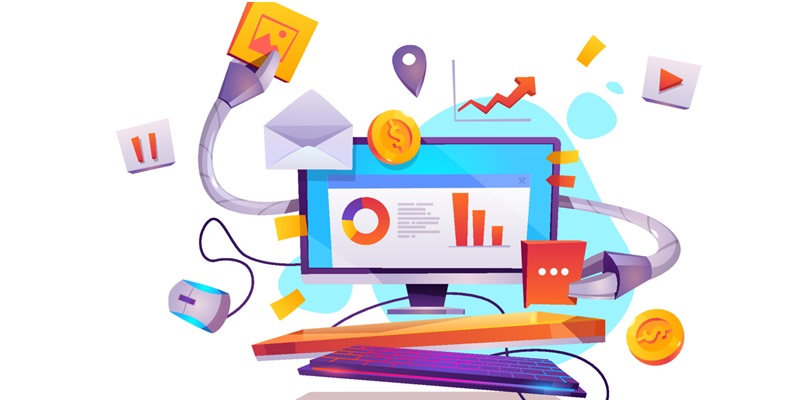Last year, we were all wondering what to make of generative artificial intelligence (AI). In 2024, however, it is becoming increasingly clear that AI will play a significant role in revolutionizing email marketing and development. This article explores the exciting possibilities that lie ahead, focusing on how AI will assist email marketers and developers. Additionally, we delve into the importance of authenticity and empathy in email marketing, the creation of personalized customer experiences, the crucial connection between accessibility and email engagement, the new bulk sender requirements from Gmail and Yahoo Mail, and consumer preferences for email communications. Moreover, we examine how integrating multiple communication channels can augment and enhance customer communication strategies in this digital age.
AI’s Assistance in Email Marketing and Development
In the ever-evolving landscape of email marketing, AI is emerging as a powerful tool to aid marketers and developers. On its own, AI can clean up code, automate mundane tasks, and streamline workflows. For email developers, the integration of AI means eliminating time-consuming manual tasks, allowing them to focus on more critical aspects of their work. AI creates efficiencies and improves accuracy, ultimately enhancing campaign performance and driving better results.
The Importance and Role of Authenticity
In an era saturated with digital noise, authenticity remains the key to a successful email marketing campaign. Customers crave a genuine connection, and empathy plays a vital role in achieving this. By infusing emails with authentic and original ideas from real people, marketers can foster trust and engagement. Sharing stories, highlighting real experiences, and incorporating user-generated content all contribute to the authenticity of email campaigns. This human touch helps establish a meaningful connection with recipients, leading to increased open rates, click-throughs, and conversions.
Creating a Personalized Customer Experience
Email marketing works best when it creates a one-to-one customer experience. Personalization enables marketers to tailor their messages to each recipient’s preferences and behaviors. AI-powered algorithms analyze data, segment audiences, and send targeted emails based on customer interactions, preferences, and purchase history. By delivering personalized content, offers, and recommendations, email marketers can deliver relevant messages that resonate with recipients, fostering deeper connections and driving higher engagement and conversions.
The Connection Between Accessibility and Email Engagement
Accessibility and good email engagement go hand in hand. Emails designed with accessibility in mind ensure that all recipients, regardless of physical abilities, can fully engage with the content. Accessibility considerations include using alt text for images, proper HTML structure, and clear email design. Taking these steps not only ensures compliance with accessibility standards but also makes emails more readable and enjoyable for everyone. By making emails accessible, marketers can reach a broader audience, improve engagement rates, and foster a more inclusive brand image.
New Bulk Sender Requirements
In early 2024, Gmail and Yahoo Mail will implement new bulk sender requirements. These requirements aim to enhance email security, minimize spam, and reduce malicious activities. It is essential for email marketers to understand and comply with these requirements to maintain deliverability and ensure their messages reach the intended recipients. Adhering to authentication protocols, such as DKIM and SPF, and adopting proper sending practices will become more critical than ever. Staying abreast of these changes and implementing the necessary measures will secure a successful email marketing strategy in the coming years.
Consumer Preferences for Email Communications
Upcoming research from Sinch reveals that consumers continue to prefer email for promotional and transactional brand communications. Contrary to some predictions that email marketing is losing relevance, consumers still appreciate the convenience, personalization, and familiarity that email offers. However, it is vital for marketers to strike the right balance between engaging content and respecting subscribers’ preferences, ensuring that emails do not become overwhelming or intrusive. By understanding consumer preferences and aligning strategies accordingly, brands can maintain strong relationships and achieve higher customer satisfaction.
Integration of Multiple Communication Channels
While email remains a powerful communication channel, 2024 is the optimal time for marketers to consider augmenting and enhancing customer communication strategies with other channels. Incorporating channels like social media, chatbots, voice assistants, and SMS can offer additional touchpoints to engage and connect with customers. This multi-channel approach allows for a more holistic and comprehensive customer experience. By integrating various channels, marketers can cater to individual preferences and reach customers on their preferred platforms, enabling a seamless and cohesive brand experience.
The future of email marketing in 2024 lies in embracing AI, authenticity, and personalization. AI assistance in email marketing and development will drive efficiency and produce better results. Authenticity creates a genuine connection with recipients, building trust and fostering engagement. Personalization enables one-to-one customer experiences, leading to higher engagement and conversions. Accessibility is crucial for inclusivity and expanding the reach of the audience. Compliance with new bulk sender requirements from Gmail and Yahoo Mail is of utmost importance. Consumer preferences continue to prioritize email for brand communications, but integrating multiple channels is necessary to enhance customer communication strategies. By embracing these trends and adjusting email marketing strategies accordingly, businesses can stay ahead of the curve and deliver impactful, personalized, and engaging email experiences in 2024 and beyond.

